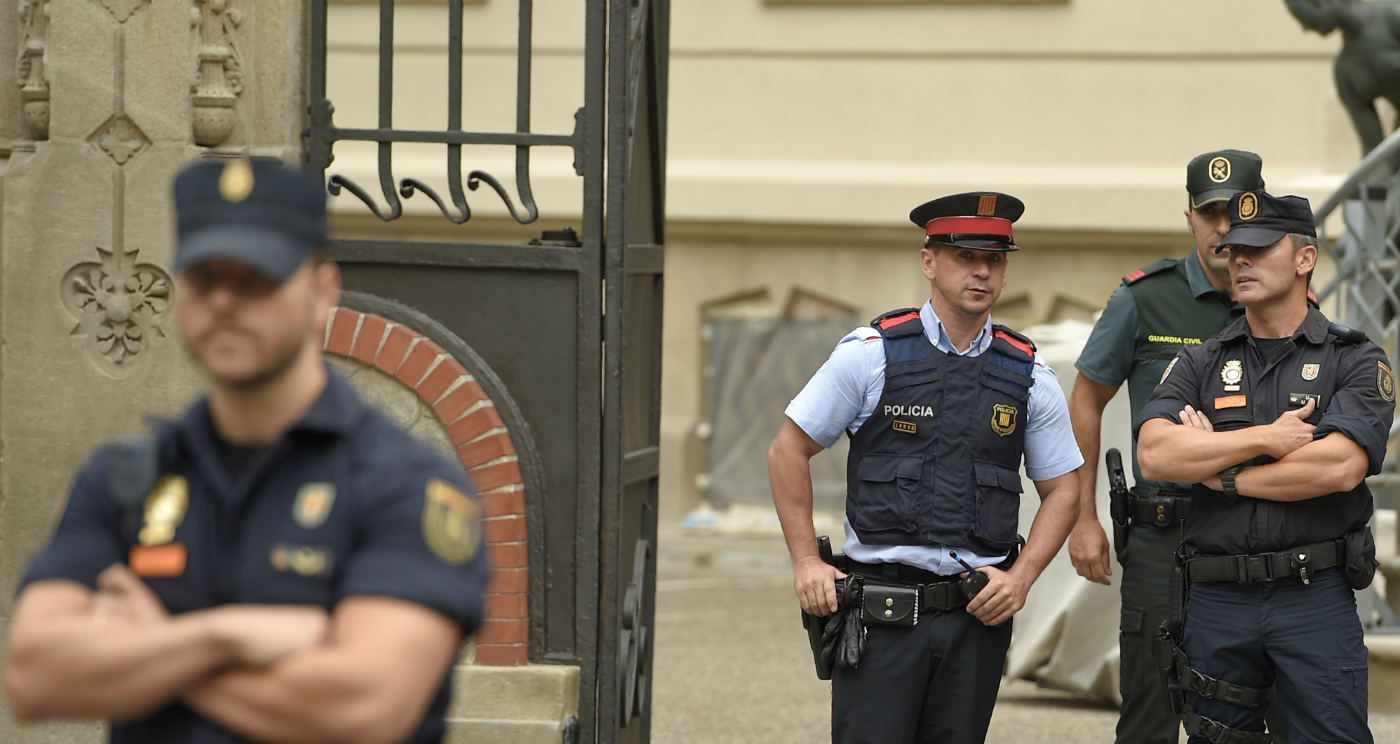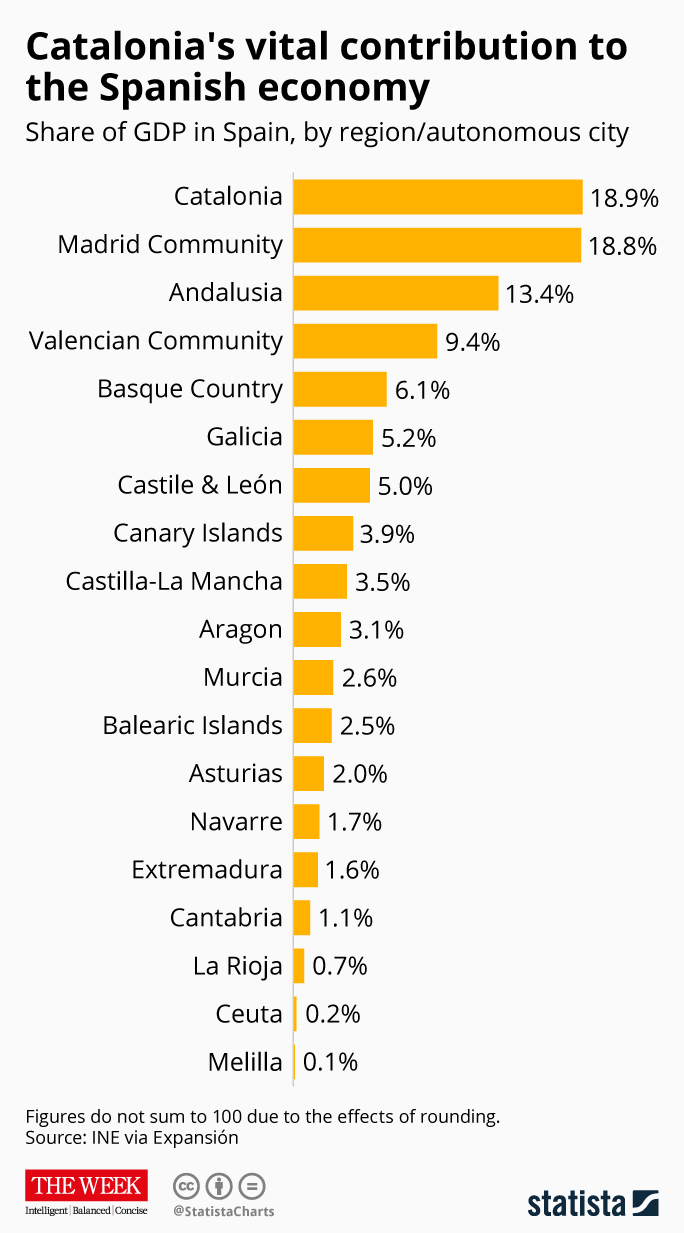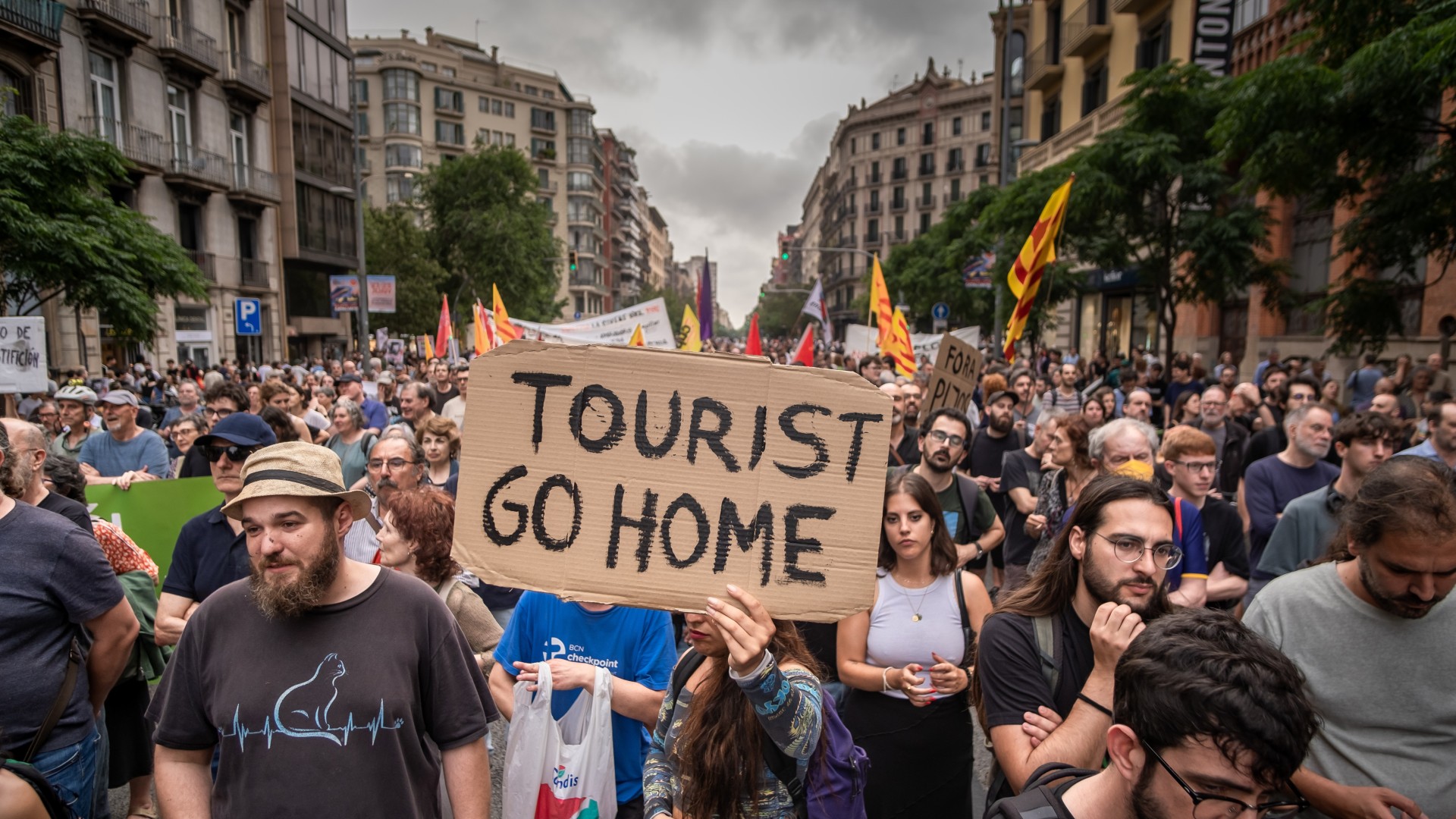Catalonia independence: Spain in ‘full crisis mode’
In Depth: Yes vote on Sunday would be just the start of Catalonia’s and Europe’s problems

A free daily email with the biggest news stories of the day – and the best features from TheWeek.com
You are now subscribed
Your newsletter sign-up was successful
Catalan separatists in Spain are determined to vote in Sunday’s independence referendum, despite Madrid sending in police to arrest a dozen of their leaders, raid government offices, seal off warehouses holding ballots and threaten to take over any voting booths.
While polls indicate that the majority of Catalans favor remaining part of Spain, there is worry that Madrid’s heavy-handed tactics could help swing the pendulum in favour of the “leave” campaign.
“There is anger at the Spanish government for not allowing an official vote on the matter and for the perceived suppression of a democratic process,” says CNBC.
The Week
Escape your echo chamber. Get the facts behind the news, plus analysis from multiple perspectives.

Sign up for The Week's Free Newsletters
From our morning news briefing to a weekly Good News Newsletter, get the best of The Week delivered directly to your inbox.
From our morning news briefing to a weekly Good News Newsletter, get the best of The Week delivered directly to your inbox.
Pro-independence support has been growing since 2009, when Spain’s financial bubble burst and austerity measures kicked in, The Economist says. The Scottish independence referendum in 2014, which ultimately saw voters opt to remain in the UK, further “galvanized” Spanish activists, CNN adds.
Whether pro-separatists win on Sunday or not - and commentators are still debating whether Madrid will allow the vote to be held at all - Spain’s constitutional trouble shows no signs of abating.
Here’s what could happen if the vote goes ahead - and if Catalonia votes Yes.
‘Tanks on the streets of Barcelona’
A free daily email with the biggest news stories of the day – and the best features from TheWeek.com
“The Spanish government has entered full crisis mode,” Politico says.
National and regional security forces have been ordered to prevent any activity connected to setting up polling stations, seal off buildings, and confiscate computers and all material related to the ballot. Tension reached a “high point” last weekend when the Mossos d’Esquadra, Catalonia’s police corps, were ordered to accept coordination from a non-Catalan official - a colonel of Spain’s Civil Guard police force, Bloomberg says.
Spain's chief public prosecutor has refused to rule out the arrest of Catalonia’s president Carles Puigdemont on charges of civil disobedience, abuse of office and misuse of public funds for pressing ahead with preparations for the 1 October referendum, The Daily Telegraph says, citing an interview on Onda Cero radio.
In the event of a Yes vote, Madrid is likely to do everything in its power to declare the poll illegal and non-binding. If arrests and negotiation don’t stop the movement, Spain’s central government has the option of using Article 155 of the constitution and officially suspending self-government in Catalonia.
“This extreme measure, never used in modern Spain, would in theory make possible what Catalans often joke about: tanks from the Spanish army would drive down the avenues of Barcelona,” The New Statesman says.
The financial impact
Luis de Guindos, Spain’s economy minister, says a split would be “brutal”, leading to a 30% drop in Catalonia’s economy and causing unemployment to double, the Financial Times reports. Banks in Catalonia would relocate their headquarters to Spain, and the Catalan currency would be worth 30% to 50% less than the euro, he predicted.
Europe would also feel the pain, economists warn.
“If the Catalonia referendum goes ahead we expect this to be a disruptive event for the euro, with the potential for a sharp decline of up to five per cent initially in the single currency if the separatists win,” Kathleen Brooks, research director at City Index, told the Daily Express.
Spain’s economy minister told the FT that a Catalan exit would also mean an automatic exit from the EU and eurozone, subjecting 75% of the region’s production to export tariffs - but not everyone agrees.
Carles Puigdemont, the Catalan president, says that a Yes vote would form the basis for discussions with the EU, and Catalonia would not necessarily be expelled from the EU and the eurozone.
Jean-Claude Juncker, president of the European Commission, has said that an independent Catalonia would have to apply to join the political bloc, with Spain likely to try to block that application.
‘Catal-exit’ negotiations
If pro-separatists succeed on Sunday, Catalonia’s 7.5m people would probably declare independence from Spain within days but, as the UK has learned, a Yes vote would be just the start of an agonisingly difficult separation.
Setting aside the problem of Madrid’s opposition and membership in the EU, Catalans would be forced to make a number of difficult decisions in quick succession.
Would a separatist Catalonia form its own military? Which currency would it use? Does Catalonia have a plan to negotiate trade deals with other nations? And, of course, how would Catalonia - an autonomous community located on the northeastern extremity of the Iberian Peninsula - man its borders with Spain and France?
What rights would it offer EU citizens? And would it be willing to pay a ‘divorce’ bill if Madrid ever did, grudgingly, accept a majority Yes vote?
Catalonia accounts for 19% of Spain’s gross domestic product and contributes €224bn (£196bn) a year to the Spanish economy, according to regional government statistics, so Madrid isn’t likely to let the region go without a price.
Catalonia also accounts for 16% of Spain's debt, which in 2016 was priced at about $1.18tn (£878bn), according to central bank statistics.
“Much would depend on the financial and political terms under which Catalonia left, including how Spain’s debt burden would be split and whether Madrid would impose economic sanctions on Catalonia for withdrawing unilaterally,” The New York Times says.

-
 Health insurance: Premiums soar as ACA subsidies end
Health insurance: Premiums soar as ACA subsidies endFeature 1.4 million people have dropped coverage
-
 Anthropic: AI triggers the ‘SaaSpocalypse’
Anthropic: AI triggers the ‘SaaSpocalypse’Feature A grim reaper for software services?
-
 NIH director Bhattacharya tapped as acting CDC head
NIH director Bhattacharya tapped as acting CDC headSpeed Read Jay Bhattacharya, a critic of the CDC’s Covid-19 response, will now lead the Centers for Disease Control and Prevention
-
 Why Spain's economy is booming
Why Spain's economy is boomingThe Explainer Immigration, tourism and cheap energy driving best growth figures in Europe
-
 Can the UK avoid the Trump tariff bombshell?
Can the UK avoid the Trump tariff bombshell?Today's Big Question President says UK is 'way out of line' but it may still escape worst of US trade levies
-
 Five years on, can Labour's reset fix Brexit?
Five years on, can Labour's reset fix Brexit?Today's Big Question Keir Starmer's revised deal could end up a 'messy' compromise that 'fails to satisfy anyone'
-
 Foreigners in Spain facing a 100% tax on homes as the country battles a housing crisis
Foreigners in Spain facing a 100% tax on homes as the country battles a housing crisisUnder the Radar The goal is to provide 'more housing, better regulation and greater aid,' said Spain's prime minister
-
 Barcelona's Airbnb ban: a sign of things to come?
Barcelona's Airbnb ban: a sign of things to come?Talking Point Crackdown on short-term lets to combat unaffordable housing echoes similar moves elsewhere, but anti-tourism protests could prove self-defeating
-
 Why au pairs might become a thing of the past
Why au pairs might become a thing of the pastUnder The Radar Brexit and wage ruling are threatening the 'mutually beneficial arrangement'
-
 Brexit: where we are four years on
Brexit: where we are four years onThe Explainer Questions around immigration, trade and Northern Ireland remain as 'divisive as ever'
-
 Is it time for Britons to accept they are poorer?
Is it time for Britons to accept they are poorer?Today's Big Question Remark from Bank of England’s Huw Pill condemned as ‘tin-eared’